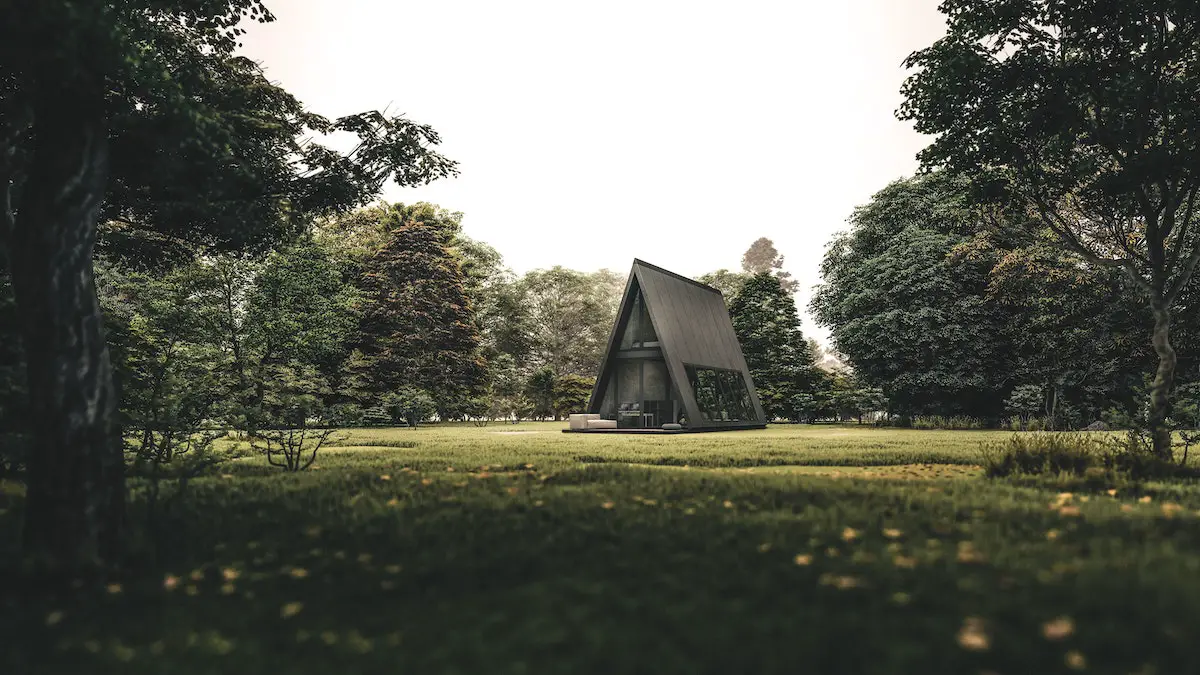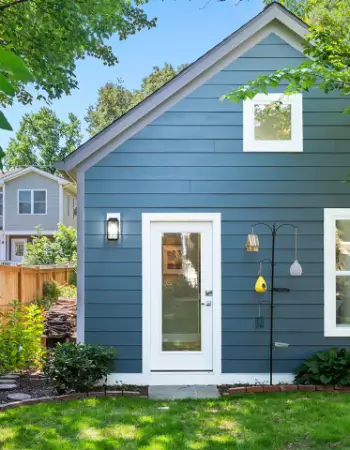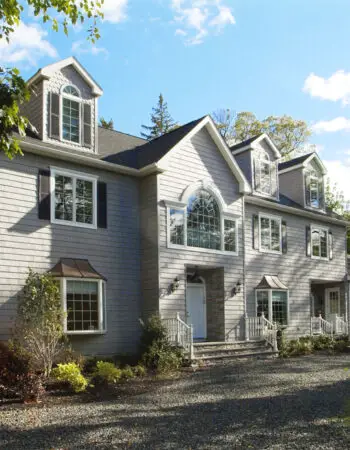Putting a modular home on your parents’ property isn’t easy but it can be done. Modular homes are considered real estate property and you won’t be able to add a modular home you own on land owned by your parents unless you go through a process. Modular homes are built per modules in a factory-like environment and delivered pretty much completed to the site, a building process comparable to that of manufactured or mobile homes. Though, while placing a manufactured home on your parents’ property only requires getting a permit, to add a modular home is a complex procedure that needs to be carefully studied and planned.
Different processes you can follow to add a modular home to your parents’ property:
- Add an ADU to your parents’ property
- Subdivide the property
- Create a Real Estate Compound
While each one of these procedures is a perfectly valid solution, not all of them might be convenient for you. Before adding a modular home to your parents’ property, check all the different rules and restrictions that may apply to their property to determine which solution is more suitable for your situation.
Understanding the difference between real estate property and personal property
It is common to confuse modular and mobile homes since they follow construction processes that look very much alike. However, these two types of homes are so different that even the title they receive differs: Mobile homes are considered personal property while modular homes are always built as real estate property. This distinction is key to understanding why installing a mobile home on your parents’ property is a mere formality but putting a modular home becomes a complex process.
Mobiles homes are personal property
Personal property is a title commonly associated with vehicles though since mobile homes are originally designed to be transportable. They are considered personal property because since their construction is independent of a location, they cannot be regulated by the standard building codes associated with every area and are instead supervised on a national level by the Department of Housing and Development (HUD) [1]. Being a personal property, mobile or manufactured homes can be installed on a piece of land that isn’t owned by the mobile homeowner.
Modular homes are real estate property
Modular homes, follow a different path and despite being prefabricated per modules, they are always constructed according to a specific location where they will be permanently settled. As permanent constructions, modular homes are built according to the local building codes, and once constructed they become real estate property together with the land on which they are raised. By definition, modular homes and the land where they are placed cannot belong to different owners.
How to put a modular Home on your parents’ property
You cannot just place a modular home you own on your parents’ property, though there are different processes you can go through in order to be able to do so. Below, we explain to you the different ways that allow you to legally place a modular home on your parents’ property.
Add an ADU to your parents’ property
An ADU, or Accessory Dwelling Unit, is a residence that shares the lot with the main house of the property [2]. This unit is often smaller than the main house, but it is treated as an independent living space that has all the necessary amenities to become a home by itself: kitchen, bathroom, and sleeping area. There are multiple ways to install an ADU but the equivalent to installing a modular home on your parents’ property is a detached ADU.
Even if it is treated as an ADU, this construction is built just like any modular home and will always be placed on a permanent foundation [3]. In this case though, instead of becoming a new real estate property, it will become part of your parents’ original real estate property. This means, that
you cannot own this modular home alone because its owner is the property’s owner. However, ADUs can legally be rented out, so you could rent the modular home installed on your parents’ property [4].

Subdivide the property
Subdividing your parents’ property means dividing the original property into different properties: what was originally one lot now becomes two or more independent lots that can be owned by different people. With subdivision, your parents’ property becomes smaller and part of the original land may become yours.
Subdivision is maybe the simplest way to put a modular home you own on your parents’ property because as soon as part of this property becomes your own, the process of building a modular home is simplified: you buy a modular home to be placed on your own land as part of your own real estate property.
Create a Real Estate Compound
A real estate compound is a single plot of land with multiple buildings or homes. Originally, the concept of a real estate compound is understood as a communal or multi-generational way of living that consists of one -generally big- plot of land with several houses, one of them usually being larger and acting as the main house, where events or meals take place [5]. However, the usage of a real estate compound will depend on each family or community.
A compound is a smart solution to share the property with your family while keeping your independence. Laws and regulations for real estate compounds vary from one location to the next and it isn’t always possible to develop. However, this solution usually represents a shared ownership with your parents.

Before building a modular home on your parents’ property
All the options presented above are possible solutions that might be helpful to you if you are planning to install a modular home on your parents’ property. However, not all of them will be convenient or even possible in your own situation. Here is a list of things you should consider before going through any of these procedures.
- Consult with your local government: Every location has different rules when it comes to adding buildings to property or subdividing properties. Always start the process by checking what is allowed in your area. Also, every property or piece of land is restricted by zoning laws which usually define what can be done in a property and what can’t, such as how many buildings can the property have, as well as their sizes, height, or distances between the building and the property’s limits [6].
- Check with your HOA: If your parents’ property is part of a Homeowners Association (HOA) you need to consult their neighborhood laws as well. HOAs usually define certain rules and guidelines that are enforced among the residents of the HOA’s jurisdiction [7]. Every HOA has its own set of rules that may impede you from adding an additional home in one or all the options disclosed.
- Consider the costs of the property changes: Any changes in the real estate property will directly affect your Tax bill and property costs [8],[9]. Do some research and consult your situation with an expert before making any decisions.
- Think about the future: Any of these options will modify your parents’ property as well as compromise you both in one way or another. Try to visualize what will happen if things go wrong and the different possibilities and difficulties you might encounter in case you and/or your parents move out. Analyze if the solution you are finding now is a smart move in case you need to sell or rent one or both of the houses in the future.
References:
- Manufactured, Mobile Home Personal Property Taxes indy.gov https://www.indy.gov/activity/manufactured-mobile-home-personal-property-taxes
- (2022, April 7) What is an ADU? Accessory Dwelling Unit a.k.a Granny Flats or Backyard Cottages Raleighhttps://raleighnc.gov/zoning-planning-and-development/what-adu
- (2021, March 28) Quick Guide to Pre-Fab ADUs: Manufactured vs Modular vs Panelized vs Stick-Built SnapADU Design Build https://snapadu.com/blog/pre-fab-adus-manufactured-vs-modular-vs-panelized-vs-stick-built/
- (2019) Spevak, E., and Staton, M. The ABCs of ADUs – A guide to Accessory Dwelling Units and how they expand housing options for people of all ages AARP Real Possibilitieshttps://www.hcd.ca.gov/policy-research/docs/adu-guide-web-singles.pdf
- Grant, T. (2019, April 2019) What Determines a Real Estate “Compound”? Pocket Sense https://pocketsense.com/determines-real-estate-compound-12012010.html
- Restrictive covenants – what they mean Home Owners Alliance https://hoa.org.uk/advice/guides-for-homeowners/i-am-buying/restrictive-covenants/
- Chien, J. (2022, February 26) Homeowner Association (HOA) Investopedia https://www.investopedia.com/terms/h/hoa.asp
- How Dividing Property Affects Your Tax Bill Jackson County Real Property Lister https://www.co.jackson.wi.us/vertical/sites/%7B4C09F8F2-A8A2-4929-9E2A-A836851B00CC%7D/uploads/%7B3EB3E6C7-DB0E-4EB6-8705-91646D24393D%7D.PDF
- Granny Units/Accessory Dwelling Units (ADUs) Office of the assessor, County of Santa Clara https://www.sccassessor.org/index.php/property-information/homeowners/granny-units-accessory-dwelling-units




